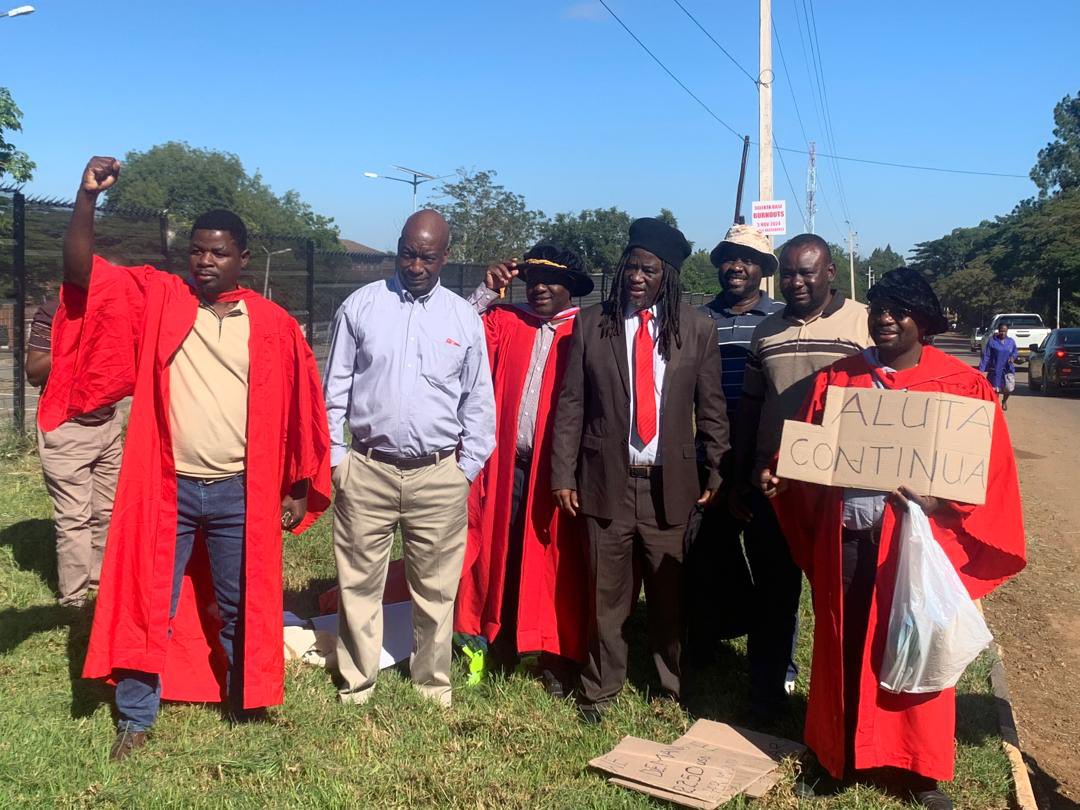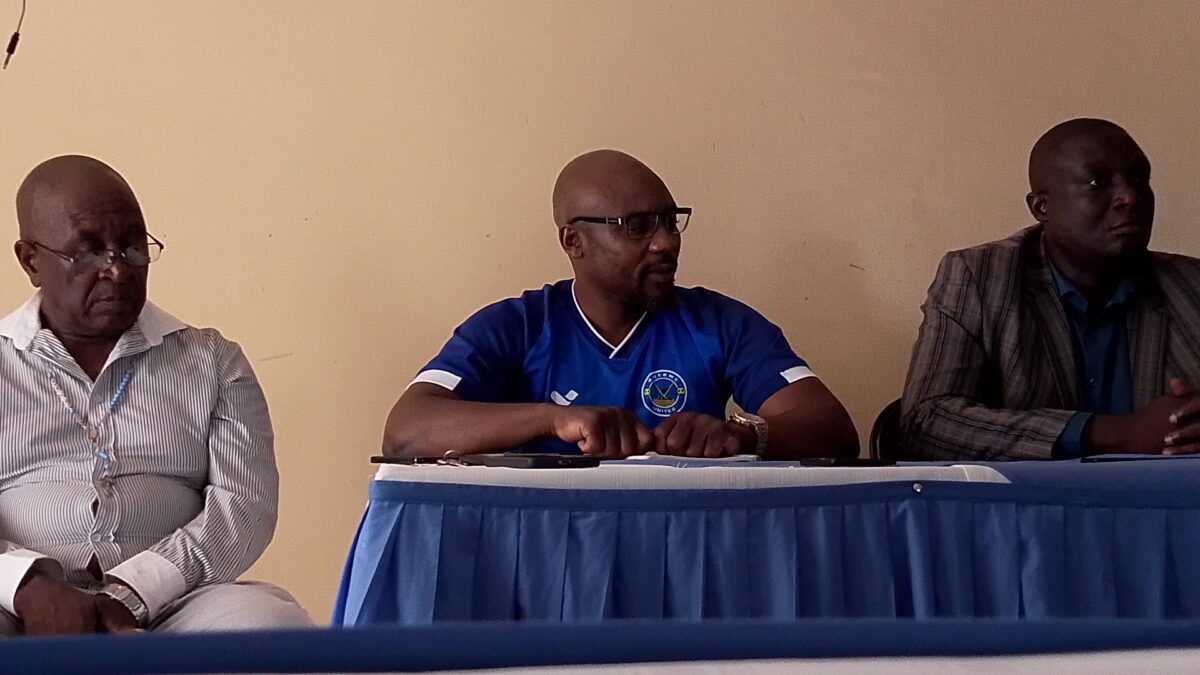THE poor remuneration and deplorable conditions of service for academic staff at Zimbabwe’s state universities, which has led to the highly publicised indefinite strike by the teaching staff at the University of Zimbabwe (UZ) smacks of a shocking administrative failure and abuse of duty by the authorities at the state universities; with the embarrassing complicity of the Ministry of Higher and Tertiary Education, Innovation, Science and Technology Development.
At the core of their long unresolved multifaceted grievances, the striking UZ academic staff are demanding the restoration of their pre-October 2018 salary levels, when the basic salary of a junior lecturer was circa US$2,250 to $2,500 per month.
This fair demand arises from the fact that in October 2018, the university authorities inexplicably slashed the US$2,250 to $2,500 per month; to what is today a paltry average of US$230 to $300 per month. The reduction has been by a cruel 87 percent.
The current reduced salary has a local currency component, averaging ZWG 6,000 to 8,000, and amounting to less than US$200.
No-one needs any advice from a rocket scientist to understand that this deplorable situation has left the academic staff unable to make ends meet, as they cannot afford basic necessities like housing, food, transport, healthcare, school fees and the like; in an economy whose generally harsh environment has been worsened by inflation and currency devaluation.
Through their union representative, the Association of University Teachers (AUT), the academic staff at UZ have given the public a compelling case about their slave wages and deplorable conditions, and the staff describe their pitiful financial situation as rendering them “incapacitated” to perform their duties effectively and efficiently.
Although there are many disturbing facets that the academic staff have shared about their salary dire straits, notably, two of their grievances expose the rot at UZ in particularly telling and worrying ways.
First, the AUT says while the UZ academic staff have been wallowing in enforced poverty due to the unilateral slashing of their salaries in 2018, in the interim the UZ management has awarded itself lavish packages that have included luxury cars and hefty US dollar perks, while prioritising the pursuit of non-essential projects at the expense of the welfare and working conditions of the academic staff.
Second, the AUT says that UZ authorities have been refusing to engage the association, and claims that, since 2018, the association has written over 27 letters to UZ management asking for salary reviews, and has received only one negative response, and has been granted only two inconclusive meetings in seven years. The AUT characterises the managerial approach and attitude of the UZ as always “prescriptive’ and never “consultative” or “explorative” to find solutions.
And this begs the question: where has the Ministry of Higher and Tertiary Education, Innovation, Science and Technology Development been in this fiasco over seven years?
All told, the 2018 reduction of the salaries of academic staff by a staggering 87 percent can only be described as unfair, unjust and indefensible.
This is the case not only of the striking academic staff at UZ but also of academic staff at all state universities.
The devastating impact on the livelihoods of the academic staff has hit the bottom of the barrel; as they are no longer able to fend for themselves and their families or, as per their vocation, no longer able to adequately and meaningfully teach their students; let alone to do any research to produce the intellectual property that is necessary for the country’s industrialisation and modernisation.
While it was terribly bad for the university universities — with the complicity of the Ministry of Higher and Tertiary Education, Innovation, Science and Technology Development — to have superintended over this debacle in the first place, it is worse that they have done nothing to reverse and redress the situation over a very long seven years.
It’s a shameful debacle.
The university authorities and the ministry cannot escape the indictment that their inability to redress the situation is a shocking administrative failure and abuse of duty, which has resulted in an intolerable violation of the human dignity of the academic staff at state universities.
Not only is this a national embarrassment, but it is also a threat to the country’s economic interests with national security implications.
One thing should be clear: the poor remuneration of academic staff at state universities, which is emblematic of an insidious marginalisation of higher education and its treatment as some largely irrelevant ivory tower occupation — that can be ignored in the prioritisation of national resource allocation — needs to stop, in the national interest.
It would be impossible for Zimbabwe to defeat the enemies of the people, namely hunger, poverty, disease, ignorance and corruption without the kid of intellectual property that can only come from higher education; particularly but not only through Science, Technology, Engineering and Mathematics (STEM).
The impression often given that the solutions to hunger, poverty, disease, ignorance and corruption will come from civil servants and politicians is misguided, misplaced and wrong.
In the final analysis, countries develop and compete on the basis and strength of their intellectual capacity and intellectual property.
The most closely guarded national secrets in geopolitics is intellectual property that makes the world go round; it’s not secrets about who said what, who sleeps with who or who has stolen what. It’s intellectual property. The trade beef between the US and China is not about tariffs, it is over the ownership of intellectual property.
It is in this connection that the most important institutions – and indeed persons – in society are the producers of intellectual property, and the most common and most reliable of these institutions are universities.
A society that does not adequately remunerate or reward its academic staff at its institutions of higher education, and which treats its universities merely as teaching and learning institutions, and not as producers of cutting-edge intellectual property that’s patentable and commercially useable, is its own worst enemy.
The poor remuneration, marginalisation and mistreatment of academic staff at state universities in the country is a national crisis. It needs to be fixed as a matter of urgency!
Professor Jonathan Moyo is a former minister of a Higher and Tertiary Education, Innovation, Science and Technology Development















